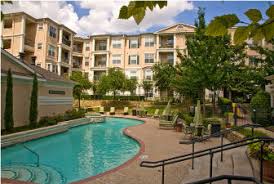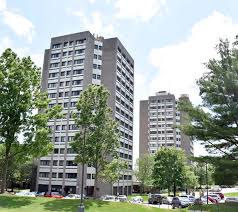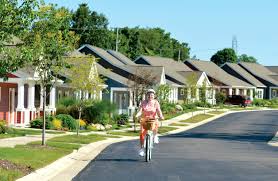 I have been thinking a lot about retirement and where we will live once my husband and I retire. We know we can’t stay where we are for very long, as we are at a high elevation, and we already experience breathing problems in our late 50s. Plus we want to be near our kids and grand kids. But we have very little saved for our retirement. Thus, we need to look into what’s available and start thinking about where we want to go. So I’ve been researching of course, and here is the housing advice for retirees that I came up with. I hope you get something of value from my research that will help you find your own retirement housing.
I have been thinking a lot about retirement and where we will live once my husband and I retire. We know we can’t stay where we are for very long, as we are at a high elevation, and we already experience breathing problems in our late 50s. Plus we want to be near our kids and grand kids. But we have very little saved for our retirement. Thus, we need to look into what’s available and start thinking about where we want to go. So I’ve been researching of course, and here is the housing advice for retirees that I came up with. I hope you get something of value from my research that will help you find your own retirement housing.
Some Considerations for Housing When Preparing for Retirement
Here are a few questions you should ask yourself and others when planning your living arrangements for retirement and beyond:
- Where do I want to live when retired?
- Where can I afford to live after I stop working?
- Should I downsize and move into an apartment or condominium?
 Do I want to live in a senior community with people my age?
Do I want to live in a senior community with people my age?- Should I rent?
- Do I still feel safe in my current neighborhood?
- Do I want to be closer to family?
- Does my health (or my spouse’s) require special living arrangements such as assisted living or a nursing home?
- Could I afford the cost of assisted care?
- Can friends and family provide assistance with daily living if I need it?
Once you determine the answers to these questions, you will be ready to decide on a LOCATION of where to live. Next you can start thinking about the LIVING FACILITY, such as a home, a condo, a retirement community, or other senior living arrangements available to you in your chosen area. Here are a few choices:
 Staying In Your Family Home
Staying In Your Family Home
The best advice I’ve heard since I started researching grandparent issues, is to sell your large family home that you have been in since your kids were little. Chances are, your big house has the following issues:
Remodeling: If you home is older than 10 years, if you haven’t been updating it on a regular basis, it is probably in need of some remodeling. Older homes can be unaccommodating to an elderly couple. Bathrooms need hand rails and wheelchair or walker accessibility. Bathtubs need to be replaced for older people access. Many older homes have stairs that are hard for an older person to negotiate. Besides that, older homes are likely to have older appliances, the high dollar ones like furnaces, AC units, and hot water heaters, that are inefficient, and therefore expensive to run. It’s best to assess these issues when thinking of staying in your own home long term.
Maintenance: Keeping a big house clean can be a daunting task. Plus there’s the yard upkeep, snow shoveling, gutter cleaning, seasonal clean up, etc. You are retired now, and don’t want to be strapped down to a house that needs a lot of work.
 House Payment: If you are like I am, you may still be paying a house payment after you retire. Paying a huge payment on a big house when you’re retired can suck up a lot of your retirement savings.
House Payment: If you are like I am, you may still be paying a house payment after you retire. Paying a huge payment on a big house when you’re retired can suck up a lot of your retirement savings.
Tax and Insurance Expense: Even if you have paid off your home, you still have to pay taxes and insurance. On a big old house in a nicer neighborhood, those expenses can be substantial.
However, if you want to stay in your home, that’s a decision that can be made only by you. There are ways to stay in your home, even if you become disabled as you age. Having a Home Help agency come in several times a week to help with self care and light housekeeping can work, and you can hire out the heavy cleaning, maintenance, and lawn care as well. So, if you can afford it and really want to stay in your home, it can be done.
 Senior Apartments
Senior Apartments
Senior apartments can be in complexes, or grouped as town homes, condos, or duplexes. They can be arranged as studio apartments or have separate bedroom, living room and kitchen. They may or may not include community rooms, exercise facilities, a full time nurse on premises, or other amenities. They are often geared for low income people over 55 years of age. These apartments are generally leased or rented month-to-month to the individual or couple. These rentals can be in a great senior community where there are get-togethers and fun activities. However, because of the over 55 rule, you would not be able to have your grandchildren stay with you for extended periods of time.
Retirement Communities
 A senior retirement community offers three main features—security, senior-focused amenities, and a sense of community. Security ranges from gated facilities to emergency alarm response features within the senior homes. Amenities for seniors are based on the age, abilities, and interests of seniors who are 55 and older. A sense of community allows seniors to have social connections with other residents who are in the same stage of life, that being retirement. These are generally sold as units, and will have a monthly HOA fee for maintenance, landscaping, clubhouse, and snow removal. Because you own the property, you can likely have grandchildren living with you, however they may not be welcome in the community areas. So, check with the HOA guidelines to see what the rules are.
A senior retirement community offers three main features—security, senior-focused amenities, and a sense of community. Security ranges from gated facilities to emergency alarm response features within the senior homes. Amenities for seniors are based on the age, abilities, and interests of seniors who are 55 and older. A sense of community allows seniors to have social connections with other residents who are in the same stage of life, that being retirement. These are generally sold as units, and will have a monthly HOA fee for maintenance, landscaping, clubhouse, and snow removal. Because you own the property, you can likely have grandchildren living with you, however they may not be welcome in the community areas. So, check with the HOA guidelines to see what the rules are.
Independent and/or Assisted Living Communities
The communities are more for people who need help with their day to day care and range from just a daily check in, to complete house keeping and personal care. These tend to be more of a room and board situation in a large facility that has community rooms, a cafeteria or community meals served, and has a full time nursing staff. These rooms can be rented, or can be purchased as well. These facilities likely have ranges of care, separated by floors or wings, from independent, to skilled nursing care. The advantage to this is, as you get older and require more skilled care, you can  just move to another part of the building, rather than uprooting yourself from your home to a nursing facility.
just move to another part of the building, rather than uprooting yourself from your home to a nursing facility.
Senior RV Living
Many seniors have opted for selling their permanent residence and taking to the road with a recreational vehicle (RV). The advantage to this is that you can go where ever you would like to go, to sight see, or to participate in activities, or to visit family and friends. You can certainly take your grandkids with you for as long as you would like. And in a lot of cases, RV living is less expensive than living in your old family home. However, medical care will likely not be on-sight in your RV parks, and you will have to go to your local urgent care or emergency room.
 I suggest that If you are going this route, go small. Buy or rent a small home base apartment or condo, so you have somewhere to go in case of emergency. Get a smaller, previously owned RV, not one of those brand new, giant 40 foot, 3 slide-out, $100K models, because they are VERY hard to sell if you can no longer use them. Remember that RVs depreciate like a car would, and you will lose a lot of the value once you drive it off the sales lot. This way, if you decide RV living is not for you, you don’t have to take a total loss. You can take your RV living in small doses instead of going all in; stay in your little apartment for a period, then go out on the road again in your RV. And if there is some sort of medical emergency and you have to quit RV living, you have somewhere to go, and likely have an RV unit that can be more easily sold.
I suggest that If you are going this route, go small. Buy or rent a small home base apartment or condo, so you have somewhere to go in case of emergency. Get a smaller, previously owned RV, not one of those brand new, giant 40 foot, 3 slide-out, $100K models, because they are VERY hard to sell if you can no longer use them. Remember that RVs depreciate like a car would, and you will lose a lot of the value once you drive it off the sales lot. This way, if you decide RV living is not for you, you don’t have to take a total loss. You can take your RV living in small doses instead of going all in; stay in your little apartment for a period, then go out on the road again in your RV. And if there is some sort of medical emergency and you have to quit RV living, you have somewhere to go, and likely have an RV unit that can be more easily sold.
HUD Sponsored Senior Housing Programs
 HUD (the Department of Housing and Urban Development) has programs for low income seniors to help with their housing costs. HUD has programs in the three categories below:
HUD (the Department of Housing and Urban Development) has programs for low income seniors to help with their housing costs. HUD has programs in the three categories below:
- Public Housing is owned and run by local Public Housing Agencies (PHAs).
- Multifamily Subsidized Housing is privately owned housing that is subsidized by HUD and provides tenants with affordable housing.
- Housing Vouchers provide rental assistance to individuals and families for housing in the private market.
Check with HUD at https://www.hud.gov/ to see if you qualify and what program is best for you. It’s nice to know that there are a few housing programs out there that will help you if you are approaching retirement with little or no savings.
Where Else Can I Get Money for Retirement Housing?
So you have likely been asking yourself, how do I pay for all of this? And if you have been reading my blog, you will know what my position is. I advocate for having a back up plan that can help you pay your new retirement home. Become an affiliate marketer with Wealthy Affiliate. Earn the extra money that you will need to be prepared for retirement. Please see my articles here:
 Common Wealthy Affiliate Complaints
Common Wealthy Affiliate Complaints
Wealthy Affiliate Testimonials
More Info on Wealthy Affiliate
===>Click here to start your free membership at Wealthy Affiliate<===
===>Click here to get $30 off your first month of Premium Membership at Wealthy Affiliate!<===
In Conclusion
There are a lot of considerations that need to be taken while decided where and how you will live once you are retired. As I always say, planning ahead for what is coming is the best way to make the situation easier to navigate. Think about what is best for you, your spouse, and your family. Weigh your options. Write pros and cons for each choice. This will help you make the housing decision a lot easier.
Please leave your questions and comments below, and thank you for reading!
references:
https://www.seniorliving.org/hud-senior-housing-programs/
https://blog.arborcompany.com/understanding-assisted-living-rental-vs-ownership
https://dailycaring.com/three-affordable-housing-programs-for-seniors/


It’s great to see a makes sense article on housing after retirement. Many consider the where and then forget how. I live in Arizona and while I still have a few years in me before retirement I could never see myself in assisted living or a retirement community. I have lived in towns where the retirees outnumbered the young pups and there were a ton of people who when there specifically to live until they die and they were not happy with that and shared it with everyone. With an RV you don’t like the neighbors you just drive to a new neighborhood.
HI Andy, thank you for posting your comments. You have a great point about the RV “neighborhood”. If you don’t like it, move on to the next town you want to see. I can understand your issues, as Arizona is a big retirement living draw. Where I live and work in Colorado is also big on retirement, and I see that as well, though not to the scale you are seeing, I am sure. Well, sounds like we both have a few years to make a decision on that. Anyway, thank you again for reading and commenting. Rhonda